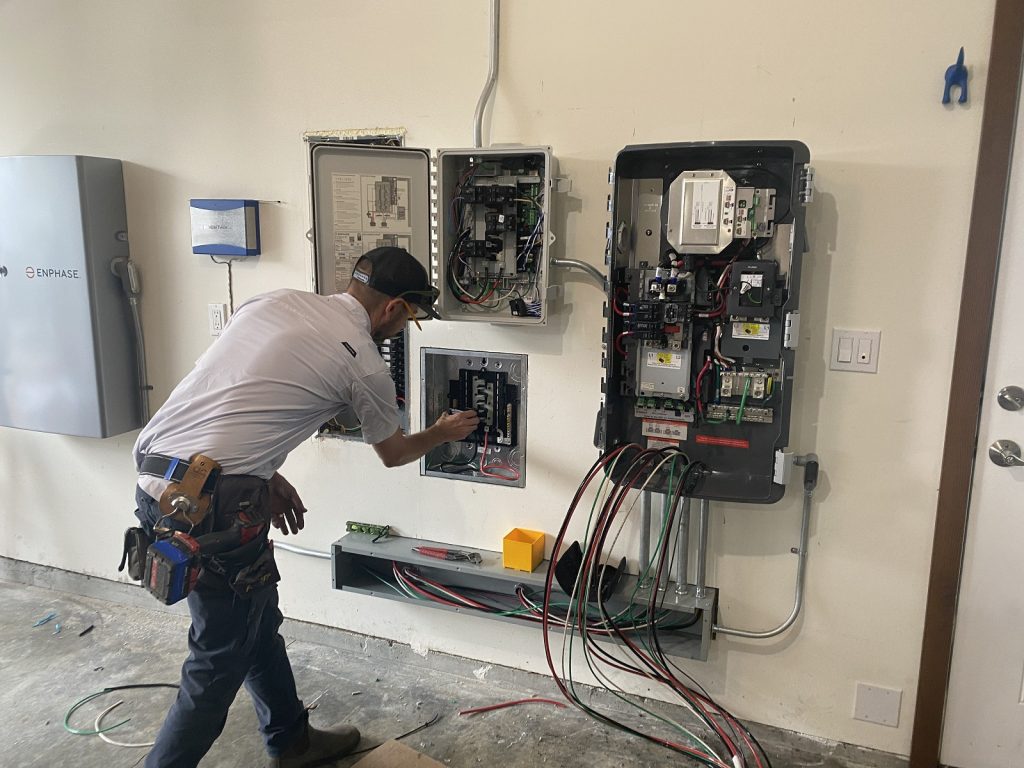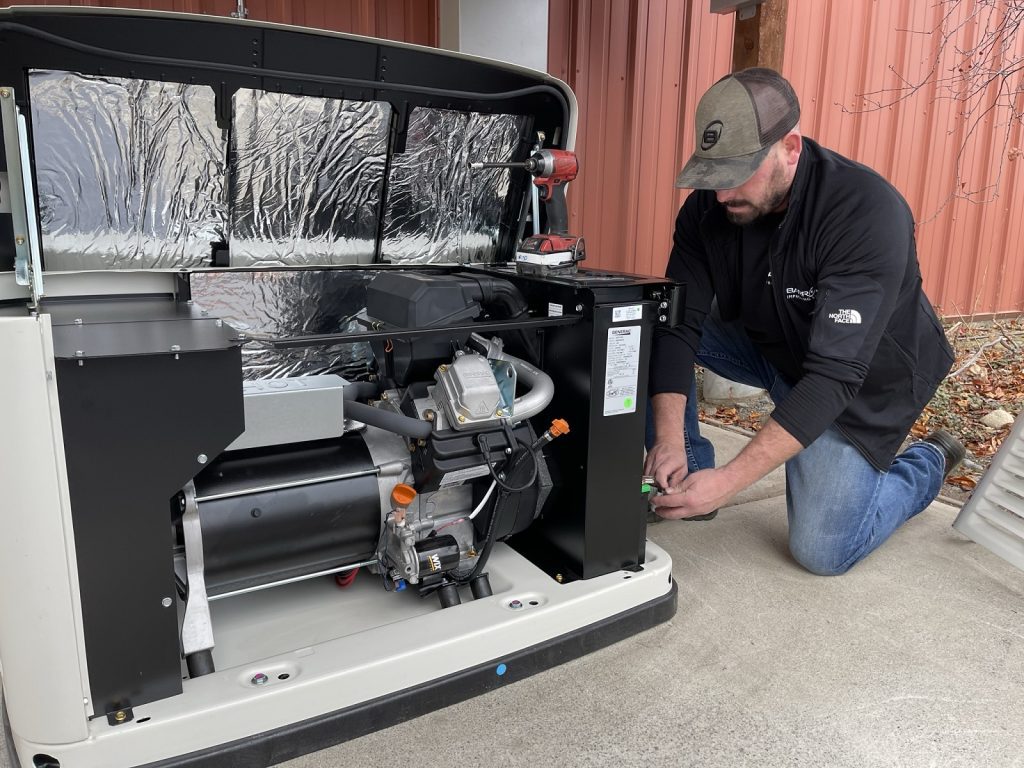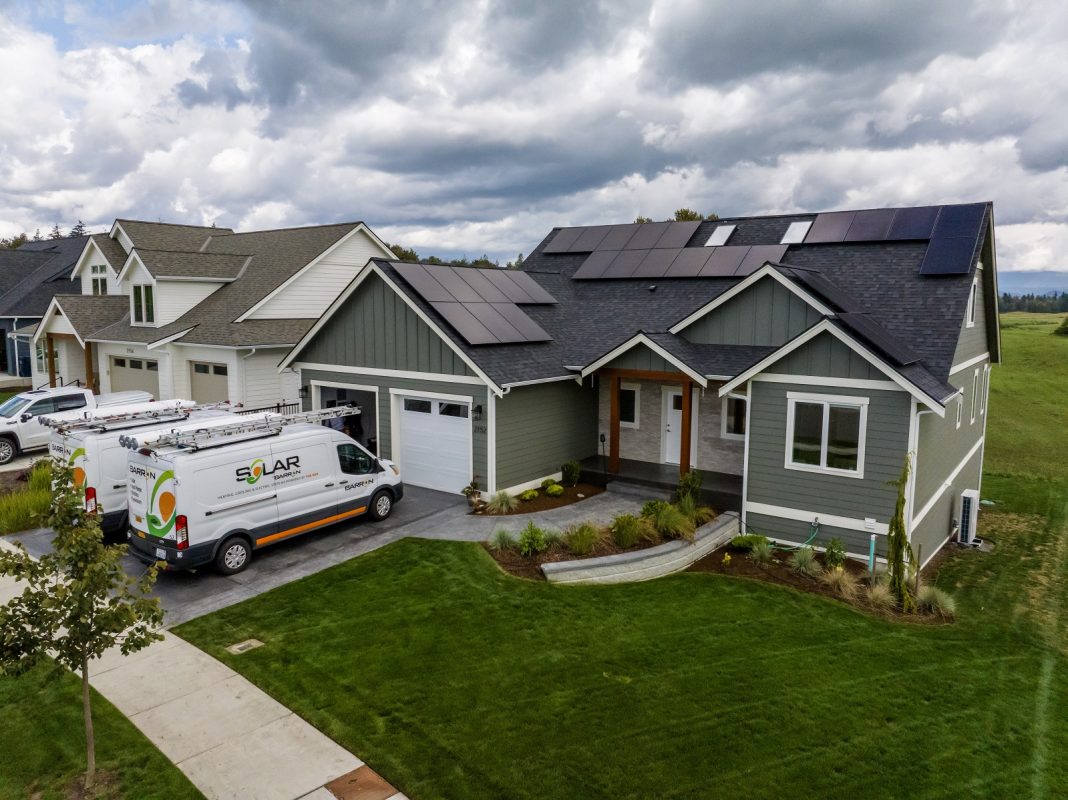Submitted by Barron Heating AC Electrical & Plumbing
While the Black Friday chaos has cooled, winter blackouts still abound. Pacific Northwest storms continue to bring heavy rains and raging winds that threaten flooding, property damage, and power outages—all of which can disrupt not just your plans but your entire household.
From failing refrigerators to heating systems shutting down to loss of hot/clean water, the impact of a power outage can be drastic. An automatic WholeHome generator can solve many of these worries, powering not just a few appliances but restoring power to your entire home in a matter of seconds. No more fumbling with your portable unit in the pouring rain, choosing to power your refrigerator over your heat, or coming home to a cold, dark home with frozen pipes. With a standby generator, your power will seamlessly remain on whether you’re home or not.
A WholeHome generator, or standby generator, is a smart solution to keep your home running during an outage, but the experts at Barron Electrical also offer a next-level package to enhance your home’s energy resilience: a battery backup system with solar. Providing ultimate energy independence, environmental benefits, and long-term cost savings, the addition of this combo can greatly improve the value, reliability, and sustainability of your home.

A battery backup system is an effective way to power your home during an outage, as it stores electricity for use when the main power source is unavailable. It captures and holds energy from the grid (when it’s up and running) or from a renewable source, like solar panels, and stores it in a large battery. When the grid goes down the system automatically switches to battery power, keeping essential appliances running like lights, refrigerators, medical equipment, and more. Battery backup systems are becoming increasingly popular in homes and businesses because they provide a reliable power supply while optimizing energy usage during peak demand.
A battery backup system can power your home on its own or alongside a generator. Many large generators take a few minutes to start up, so a battery backup seamlessly fills the gap, ensuring an uninterrupted transition. Additionally, a generator can charge the battery while running, providing a continuous power supply even during extended outages. On its own, a battery backup system can keep your home running for a limited time, depending on its size and your household’s energy usage. For longer backups, many systems allow you to expand storage by adding additional battery units.
Battery Backup System Pros
- Seamless Power Supply: Battery systems offer an automatic switch-over to backup power during an outage, ensuring no interruption.
- No Noise or Emissions: Unlike generators, battery backups are silent and produce no emissions, making them environmentally friendly and ideal for noise-sensitive environments.
- Eco-Friendly: Battery backup systems can be charged with renewable energy sources like solar, reducing your carbon footprint.
- Low Maintenance: Battery systems require significantly less maintenance than generators, which typically need fuel, oil changes, and regular upkeep.
- Federal Tax Credits: Homeowners can take advantage of federal tax credits of up to 30% for installing a battery backup system as well as waived sales tax.
- Efficiency: When connected to solar, battery backups can store energy during off-peak hours when electricity rates are lower, reducing overall energy costs.
- Smart Features: Many modern battery backup systems come with smart monitoring features, allowing users to track energy usage, battery status, and more, often via a mobile app.
Battery Backup System Cons
While there are many benefits to a battery backup system, there are a few potential drawbacks that are important to consider:
- Limited Storage Capacity: Depending on the size of your system, a standalone battery backup may only be able to store a limited amount of energy, which could be insufficient for extended power outages.
- Upfront Cost: A battery backup system is a significant investment, especially if it’s designed to power your entire home. However, the 30% federal tax credit and sales tax exemption can help offset this cost.
- Battery Lifespan: Batteries wear out over time and will need to be replaced, typically after 10-15 years.
- Energy Demand: Larger homes or those with high energy consumption (like air conditioning or multiple appliances) may require larger batteries or additional units to meet energy needs.

Combining a battery backup system with solar panels provides many key advantages, including the ability to store excess solar energy for later use. When your solar panels produce more electricity than your home needs, such as during a sunny day, the excess energy is stored in the battery backup system. This stored energy can then be used when solar production is low, such as at night, during cloudy weather, or in the event of a power outage, significantly enhancing your energy independence.
If you currently have a solar system that can power your home and charge your battery during the day, additional solar panels may not be necessary, as the battery can store enough surplus energy for nighttime use or in case of an outage. Higher energy needs, however, such as electric heating or cooling or supply for a longer backup duration, may benefit from additional panels, especially for larger homes with high energy demands. Keep in mind that not all batteries are created equal. Some systems lose energy during storage and retrieval, so it’s important to consider the efficiency of the system you choose.
As the storms rage on, now’s a great time to upgrade your energy resilience by investing in the whole package—a WholeHome generator and battery backup system powered by solar. While standby generators are ideal for immediate power during an outage, combining them with a solar and a battery system allows you to optimize your home’s energy storage and usage, reduce your carbon footprint, and enhance your energy independence. Plus, Barron Heating AC Electrical & Plumbing is now offering a “No Pay Till May” special, meaning no payments, no interest till May of 2025. We encourage you to take advantage of the current 30% tax credit and state incentives, as well to make a smart, sustainable investment for the future. As your Pacific Northwest home and building performance experts since 1972, we stand by Our Mission: Improving Lives.
Sponsored




































